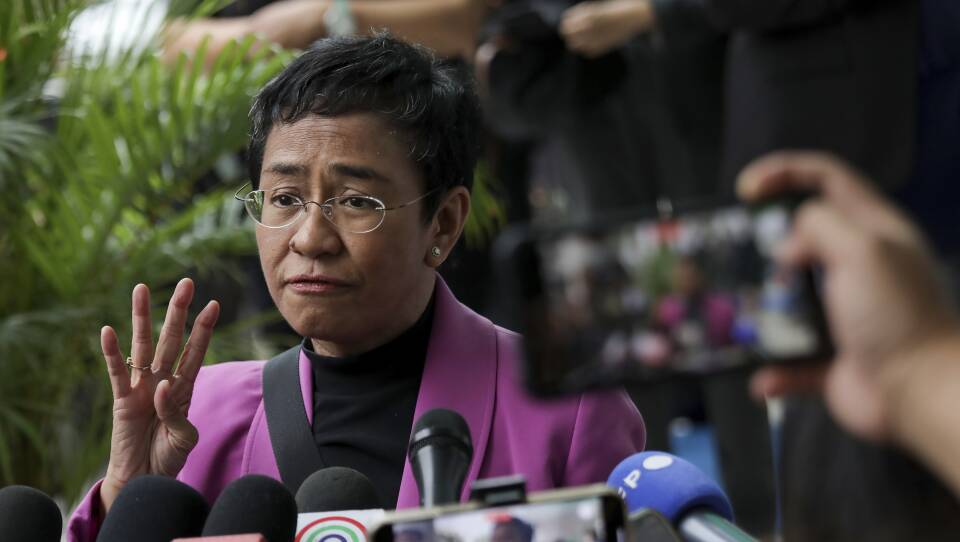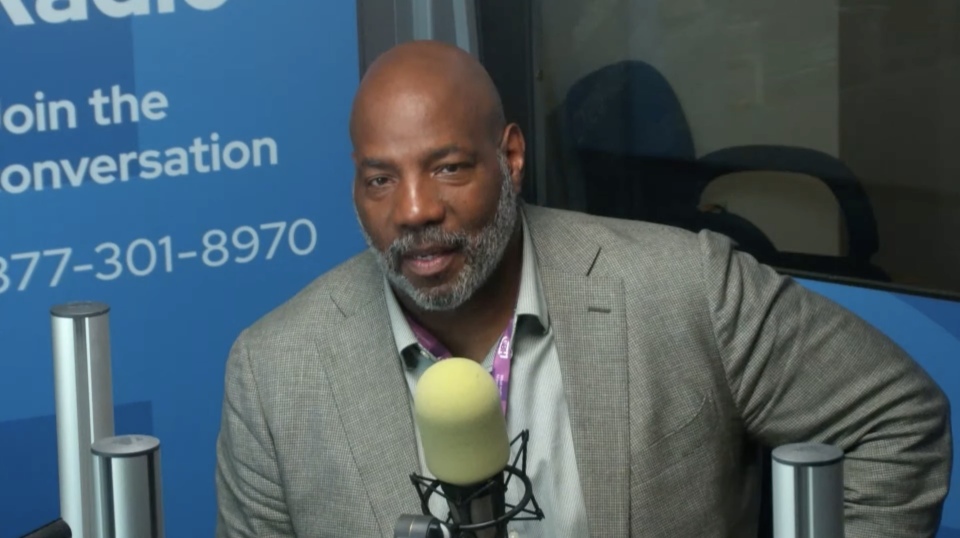Attacks on a free press. Hate messages on social media. The dismantling of government institutions.
Journalist Maria Ressa has seen this all before.
“I feel like what I’m living through today in America is like deja vu,” Ressa told Boston Public Radio on Thursday. She joined the show before participating in a discussion about the impact of false narratives and threats to democracy with Ann Marie Lipinski, curator at the Nieman Foundation for Journalism, as part of the GBH Media Summit.
Ressa is the CEO and cofounder of Rappler, a Filipino online news website, and the winner of the 2021 Nobel Peace Prize for her reporting on the human rights abuses of former Philippine President Rodrigo Duterte. Five years after Ressa was convicted of “cyber libel” in the Philippines, she now has a Nobel Peace Prize and is teaching at the School of International and Public Affairs at Columbia. Duterte, meanwhile, was arrested in March for crimes against humanity and is in jail at The Hague.
Ressa said the moves by the current Trump administration parallel the dismantling of Philippine democracy under Duterte’s rule.
The United States is not alone in its trend toward authoritarianism. According to a March 2025 report by the V-Dem Institute of Sweden, 72% of the world’s population lives in an autocracy (up from less than half of people just 20 years ago). The report warns that democracy in the United States could be in jeopardy under a second Trump presidency.
“It depends on Americans,” Ressa said. Currently, the Trump administration is testing executive powers. Many of his executive orders are being refuted in court, but the judicial system moves too slowly to check the president’s actions, Ressa said. While the legislative branch can hold the executive in power in real time, there’s been little pushback by the Republican majority against Trump’s actions.
“This is a lesson we learned in the Philippines. The rights you lose today, you are going to have to claw back with much more than you had if you were to hold the line today,” she said.
Both individuals and institutions should hold that line, she said. “This is such a pivotal moment. ... Where America goes, you take the world.”
Ressa called Trump’s actions “bully tactics,” and that folding to those demands may not be protective in the long run. For example, Trump canceled $400 million in federal funding to Columbia University. The school gave in to Trump’s demands, but one month later the school has yet to receive those funds, leaving researchers in the lurch.
“You give a bully a finger, they take your body,” Ressa said.
She also said technology is an accelerant of autocracy that can undermine democratic systems. Especially social media, which enables hate and misinformation to spread faster than facts, she said.
“Without facts, you can’t have truth. Without truth, you cannot have trust. The only government that exists without trust is a dictatorship,” Ressa said. “But beyond that, we don’t have a shared reality. Democracy happens in a shared reality.”
These divergent realities are created by tech companies fueled by the buying and selling of user data. Data feeds machine learning algorithms that serve up content that triggers fear, anger and hate, Ressa said.
Ressa is fighting for the rule of law in digital spaces — spaces where she used to receive dozens of hate messages every hour.
“The human rights we deserve in the physical world, we deserve in the virtual world,” she said.







